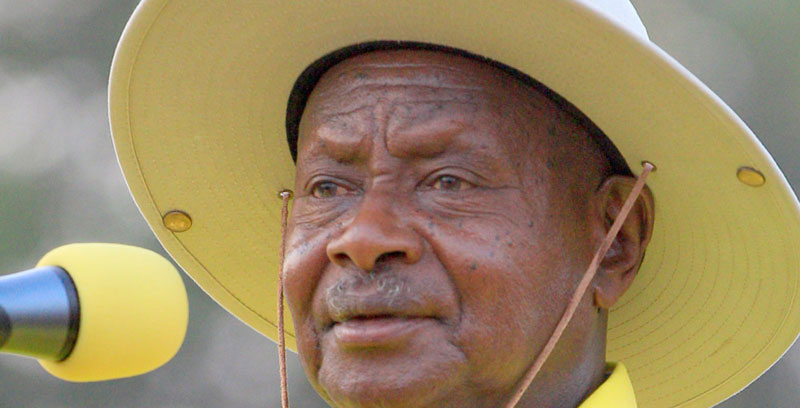
At 8.8% Uganda has in the past 20 years been worse than the world’s average worst performers in manufacturing!
Last week, I started a series of articles intended to explain the ‘true’ genesis of the on-going economic malaise, with the ultimate intent of suggesting the way out of it. I promised to come back this week.
Every time a government official comes out to explain why the economy is poorly performing, they cite external and natural factors. These range from slow growth in China, to fall in commodity prices, tight financing conditions in Europe, and geo-political events such as Brexit and U.S politics. Other factors include: South Sudan political crisis and drought conditions that affected agriculture.
Listening to government, therefore, gives the impression that the economic malaise we are facing today is wholly on account of factors beyond the control by our policymakers. Could Uganda’s policymakers be hiding behind what policy analysts call “punctuated-equilibrium theory” to evade responsibility?
If indeed all the factors troubling our economy are beyond what policymakers can control, then aren’t they proving to us that all along Uganda’s economy has been relying on good luck?
In March, I Wrote, in these very pages suggesting that we could be paying the price for over-relying on good luck. When we ran out of the luck, rains stopped coming on time; China stopped growing; South Sudan went to war; and DRC learned how to manage its affairs better.
Policymakers not in charge
When luck abandoned us donors became broke and closed the taps; commodity prices fell; and our relatives ‘sweeping’ abroad had very little to send home due to the economic meltdown, particularly in the Eurozone.
So the question we should perhaps ask is; what would the policymakers have done to remain in charge of the country’s economic fortunes? Simple: they should have remained in charge of the fundamentals as well as expectations that respectively affect long run and short run economic performance.
Countries such as Ethiopia and Rwanda that have escaped the contagion effects did exactly that. Although they adopted the market reforms proposed by the Bretton Woods institutions, they quickly followed them up with second-generation reforms – a set of measures intended to enable the country to attain, in a sustained way, high-quality growth.
So what would those in charge of our economy perhaps have done? First, if I were in charge of Bank of Uganda, I would not have maintained a monetary policy that controls supply-side generated inflation by mopping out money. I would have formed synergies with government to deal with the causes of the inflation – low production and productivity in all sectors.
Banks discouraged savers
I also would not have maintained a policy that allows banks to pay savers an annual average of 3% and charge borrowers (of the same savings) an average of 23% for two decades. I would have interrogated the possibility that the banking sector am superintending over could be suffering a ‘principal-agent problem’.
What else would explain the fact that over the past 20 years the lending rates have been more volatile than the savings rates? This is a clear sign that the banks hedge themselves against risks such as inflation and exchange deprecation, but don’t do the same for their savers.
As result, people found other ways of saving away from banks – constructing apartments and other real estates (dead capital), buying land or cattle (tied capital), or converting their money into U.S. dollars which they keep under mattresses to hedge such risks. This is the very reason lending rates are sticky downward, since banks have limited and risky credit (demand deposits).
If I were in charge at the BOU I wouldn’t have considered licensing of more deposit-taking institutions as one of the viable mechanisms of mobilising savings, without first devising mechanisms of compelling banks to reduce operational costs and spreads. Because of the latter, banks have continued to charge very high lending rates and offer very low savings rates.
As a result of the high lending rates, banks have ended up attracting mainly risky borrowers (adverse selection), and also have induces firms to undertake projects with lower probabilities of success but higher payoffs when successful (moral hazard).
Banks don’t lend farmers & manufacturers
In the end, for fear of non-performing loans (NPLs), the banks became risk averse. They prefer to lend to naturally secure borrowers (government), highly collateralized ones (real estates and construction), consumers (salary loans) and speculators, but not people who are investing in productive sectors such as agriculture (risky) and manufacturing (long term).
For many years now, the share of total loans advanced by banks to main sectors of Uganda’s economy has been in this order (from the highest to the lowest): personal loans (to build residential houses and furnish the homes, buy cars, wedding etc.), building and construction, and trade and commerce (importing Kenyan, Indian, and Chinese products).
Key sectors such as agriculture and manufacturing often receive a ‘NO’ from the credit officers of banks for the reasons already explained. There is no way I would continue presiding over the central bank that is mandated to participate in the economic growth and development, when agriculture and manufacturing are among the lowest receivers of bank credit.
How did we expect to facilitate structural change in the economy without financing industry? In the past two decades (1995 – 2015), Belarus (31.8%), Thailand (30%), South Korea (29.5%), and Malaysia (28%) registered impressive average manufacturing value added as a percentage of their GDP. The common denominator about all these countries was their ability to direct credit towards manufacturing. This is what we mean by second-generation reforms.
Economy without rules!
During the same period, Uganda’s average manufacturing value added was 8.8%. The world’s average stood at 19% while the Sub-Saharan Africa average (the worst performing region) was 11.6%. In short, Uganda has in the past twenty years been worse than the world’s average worst performers in manufacturing! And we wonder why we have failed to create jobs.
Turning to your government, Mr. President, in the past 20 or so years, you have been doing a lot of things that you shouldn’t, and not doing some things that you should. Among the things you done very little are: regulation of economy, failure to foster manufacturing industries, failure to control population explosion, and failure to protect the environment against degradation, among others.
One area where you have failed badly is regulation of the economy. Your government left the economy to operate without rules. When you were advised to liberalise the economy, you took it literally to mean that government had no role, whatsoever, to play.
You let economic agents to take advantage of the vulnerable and the poor to extort money by confining them in tight spots; a contemporary of Julius Caesar’s ploy who made a fortune in the former Roman Empire with a private fire company that would negotiate the price for extinguishing the fire as it was raging.
When called upon to step up regulation to stop economic agents from flouting the rules, Ugandan economic bureaucrats (at Bank of Uganda and Finance) maintained the rhetoric, “Ours is a free market economy; we have nothing to do.”
Poverty and vulnerability
Secondly, instead of actively facilitating private sector to build capacity and competitiveness, you have invested more of your time, effort, and money promoting programs which will remain a lot more efficient at generating heartwarming stories than they will at creating jobs – youth and women funds, unresearched interventions in agriculture, promotion of unviable SMEs, and SACCOs.
As a result, more than 40% of people that your government has helped escape poverty are vulnerable to falling back into poverty. A recent research found that for every three Ugandans who were lifted out of poverty in the first decade of the new millennium, two fell back!
In almost all the progressive countries, the quickest way for the youth and women to escape poverty and stay out of it forever is to purchase a bus or train ticket to the nearest city for a manufacturing job. Mr. President, silver bullets do not exist, but if there is anything that resembles a silver bullet, it is manufacturing.
Mr. President, my considered view is that although it is okay to be wrong, it is not permissible to stay wrong. Next week, I will propose what your government and the rest of us can do to break the barriers to private investment, facilitate the acceleration of manufacturing, enforce rules of the game, reduce inequality and corruption, and maximise returns from public investments such as infrastructure (roads and dams) as well as agriculture.
The good thing is that next week, I will have the benefit of your State of the Nation Address and the budget to see whether you are ready to have a fresh beginning or steady progress means we can have the luxury to stay wrong.














Ramathan Ggoobi
Ramathan Ggoobi is Policy Analyst, and Researcher. He lecturers economics at Makerere University Business School (MUBS) and has co-authored several studies on Uganda's economy. For the past ten years, he has published a weekly column 'Are You Listening Mr. President' in The Sunrise Newspaper, Uganda's Leading Weekly
Leave a Comment
Your email address will not be published.